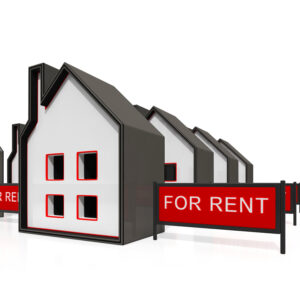protecting Yourself as a Private Landlord(Landlord Protection Insurance )
 Thanks to high property values and low interest rates, more and more people are choosing to invest in real estate. The average interest rate for a 30-year mortgage has remained under 4.5% for the first half of 2018, which is just slightly higher than the historically low rates reached in 2012. With the promise of a lucrative profit, renting out your home may seem like a foolproof financial plan, but it’s riskier than you might think. Instead of sticking with homeowner’s insurance, it’s a good idea to look for a solid landowner insurance policy that includes both property and liability insurance.
Thanks to high property values and low interest rates, more and more people are choosing to invest in real estate. The average interest rate for a 30-year mortgage has remained under 4.5% for the first half of 2018, which is just slightly higher than the historically low rates reached in 2012. With the promise of a lucrative profit, renting out your home may seem like a foolproof financial plan, but it’s riskier than you might think. Instead of sticking with homeowner’s insurance, it’s a good idea to look for a solid landowner insurance policy that includes both property and liability insurance.
What Does Property Protection Include?
No matter how carefully you safeguard your home against the elements, you can’t guarantee that it’s completely safe from natural disasters and freak accidents. Property insurance protects the unit that you’re renting out in the event of physical damage. This often covers detached structures on the property as well, such as a shed or garage. While property protection may not include personal belongings, most policies will reimburse you for anything used to service your property, such as garden equipment, tool sets, and in some cases, furniture that you provide for your tenants.
What Does Liability Protection Include?
Failure to properly maintain your property can lead to lawsuits from those who are injured on site. Sharp edges, slippery stairs, uneven sidewalks, and more are all grounds for suing. Liability insurance for landlords not only protects them against legal action from guests and visitors but also short-term and long-term tenants. It helps to cover both litigation costs, medical bills, and other fees so that you don’t get bankrupted if an accident occurs and you’re found responsible.
Additional Coverage Options
Landlord insurance covers the most common financial and legal burdens that property owners face, but standard policies don’t protect you against everything. Depending on where you live, you may want to opt for additional coverage to protect yourself and your home. It’s important to carefully go over your policy with an insurance agent to ensure that it meets all of your unique criteria. Optional coverage may include:
- Burglary and vandalism
- Construction protection
- Legally mandated repairs and upgrades
- Rental income protection
Real estate can be a lucrative investment, but as a landlord, it’s your responsibility to protect yourself both legally and financially when dealing with tenants. Landlord insurance, unlike standard homeowner’s insurance, offers financial and legal protection against tenants. Investing in policy will give you greater peace of mind when renting out your property and ensure that you’re covered against every worst-case scenario.
Sally

